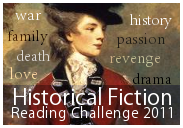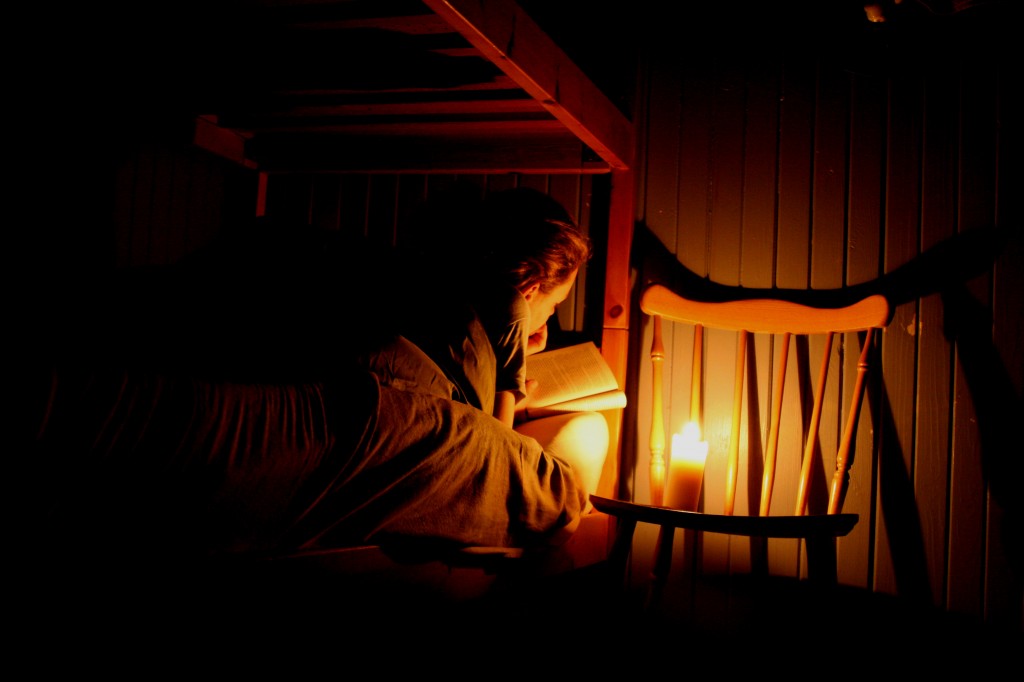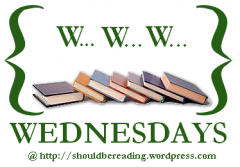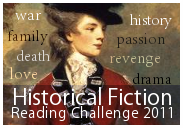[amazon_image id=”B0058M62OS” link=”true” target=”_blank” size=”medium” class=”alignleft”]The Winter Sea[/amazon_image]Susanna Kearsley’s novel [amazon_link id=”B0058M62OS” target=”_blank” ]The Winter Sea[/amazon_link] is the story of writer Carolyn McClelland, who relocates to Cruden Bay in Scotland in order to get the feel of the location for the novel she is currently writing about the 1708 Jacobite uprising—one of the lesser known skirmishes of the Jacobite Rebellion. Carrie takes a cottage in the village near Slains Castle and becomes friendly with a local family, Jimmy Keith and his two sons Stuart and Graham. After her agent suggests she try telling her story from the point of view of a female character, since Carrie can’t seem to find a male character’s voice, Carrie decides on a whim to write one of her ancestors, Sophia Paterson McClelland, into the story. Suddenly she is writing faster than she’s ever written before, and when she discovers that many of the things she’s writing actually happened, even though she hadn’t consulted history books before she wrote, she begins to wonder if she is remembering her ancestor’s life. Meanwhile, both Keith brothers begin to show an interest in more than Carrie’s writing, but Carrie finds herself drawn to the one with eyes like the winter sea and begins modeling her hero, John Moray, after Graham, a history lecturer at the university in Aberdeen.
One of the reasons I liked this book was the genealogy thread that ran through it. Genealogy happens to be one of my own interests, and I can always sympathize with characters who find it interesting, too. Carrie’s discoveries about the lives of her ancestors fascinate her father, who is able to trace the family tree back one more generation due to Carrie’s insights as she writes. I expected to find myself more interested in Carrie’s novel, the part of the book that takes place in the past, because I have an absolute fascination for Scottish history. However, I found myself more drawn to the characters in the present—Jimmy, Graham, Stuart, Carrie’s agent Jane, and even Carrie herself. This book covers a topic that I myself have wondered about: is it even possible that memories can be passed down genetically? It seems far-fetched, but it works well in this novel. It’s a fun idea, anyway, and a nice alternative to some of the other paranormal tropes that have gained traction in recent years.
Kearsley is able to capture the past vividly in the sections of Carrie’s novel intertwined with the present-day story. She has included a historical note, and explained her painstaking attention to historical events as much as possible. I was surprised to discover that few of her characters were invented. It can sometimes be hard to make real historical people do what you want them to do when you’re writing about them, which is why, I think, that some writers of historical fiction prefer to use fictional characters.
The ending of the novel satisfies both the requirements of history and the requirements of historical romance. It’s a solid novel, and I would recommend it to anyone with even a passing interest in Scotland or genealogy.
Rating:




Two other reviews I found:
Although I’ve finished the Historical Fiction Challenge, this book (or the half of it that Carrie writes) counts. For the Take a Chance Challenge, it counts for the Challenge 6: Book Seer Pick, because Book Seer directed me to it after I read [amazon_link id=”055338483X” target=”_blank” ]Garden Spells[/amazon_link] by Sarah Addison Allen. Scottish castles on the coast during winter? So Gothic.













